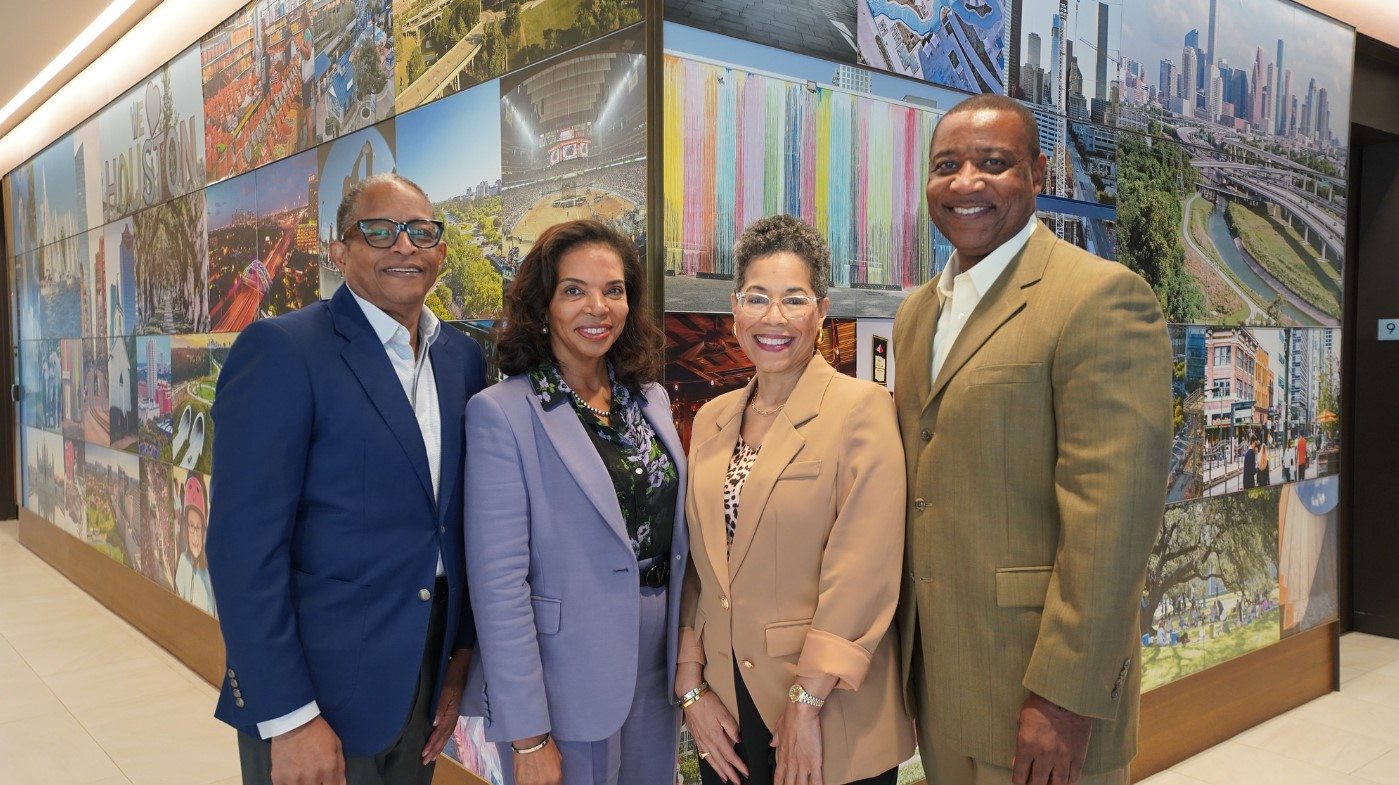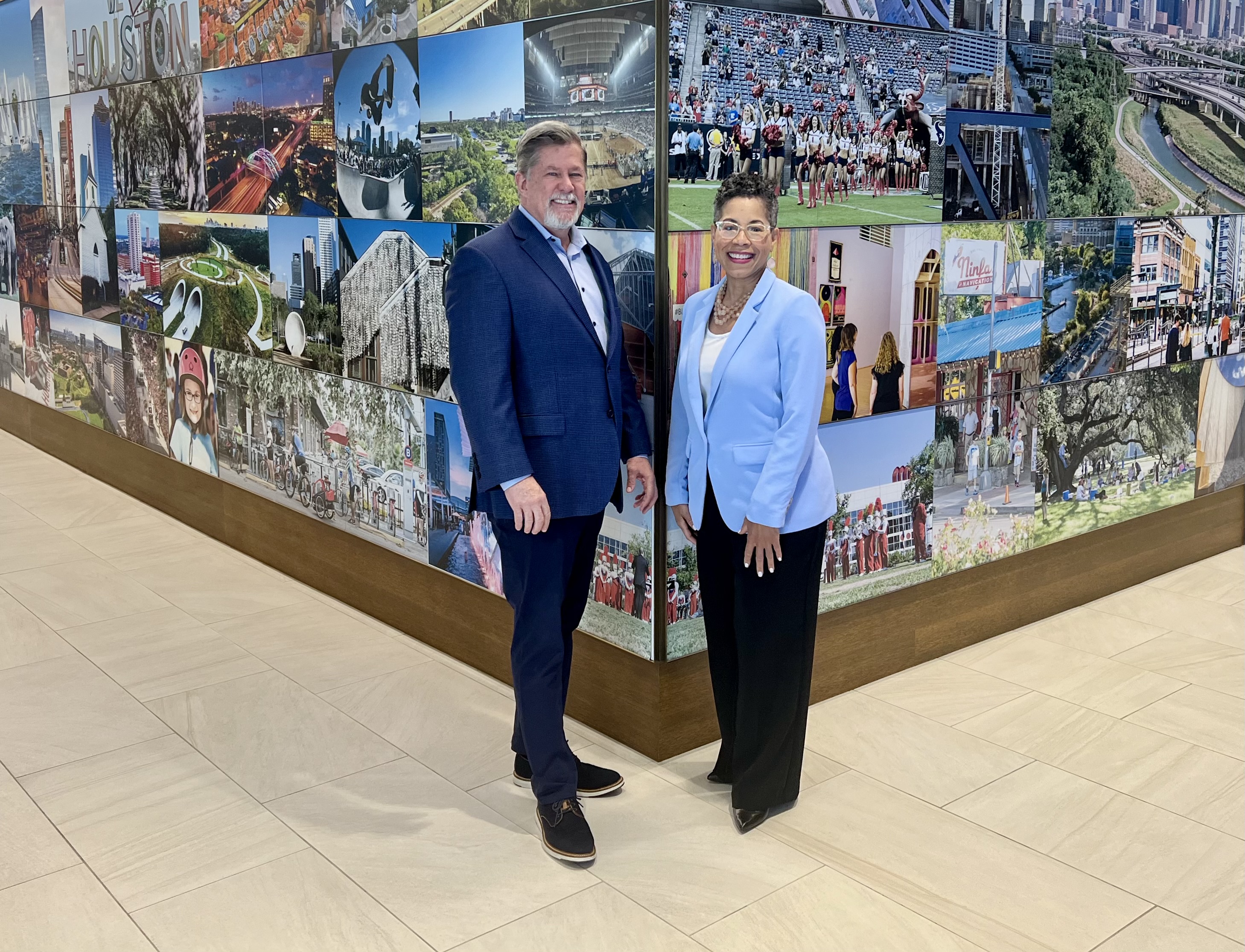One Houston Together: Driving Action to Advance Inclusion and Strategic Talent Development and Retention
Published May 19, 2022 by A.J. Mistretta
How does a global company launch an effective diversity and inclusion strategy from the ground up? And what does outside-the-box thinking look like when it comes to education benefits that significantly move the needle on talent retention?
Those are some of the questions addressed in the Partnership’s most recent One Houston Together Talent Roundtable earlier this month.
Jacobs Gets Results on Equity and Inclusion
The engineering giant Jacobs began its diversity and inclusion program in 2019 following its merger with another company. The original strategy developed four years ago remains the blueprint the company follows today, albeit with a few updates. Using key tools like the Global DEI Benchmarks – the basis for our Houston-region Equity & Inclusion Assessment – Jacobs measured their current state in 2019 and developed a transparent and measurable plan to dive change. In 2020, the company’s TogetherBeyond initiative formally launched through the Jacobs rebranding and a director position was created to oversee the effort.
Several factors have helped Jacobs achieve success, said Sabrina Becker, Global Director for the TogetherBeyond initiative at Jacobs. Visible and measurable executive support has demonstrated that equity and inclusion is a company priority from top to bottom, and one that’s tied to business goals. A robust group of employee networks with 16,000 participants enables direct connections to broader strategy and creates a clear through-line between values and people. Finally, said Becker, defined metrics for progress and regular check-ins help ensure the initiative is clearly and demonstrably working toward the broader company strategy.
“Everyone in the company knows what the strategy is and how it ties back to Jacobs values,” Becker said. “But we recognize that that strong value system has to be supported by senior management. That’s what makes the difference.”
Jacobs had to develop its baseline metrics and goals from scratch and was challenged to educate its employees on the importance of diversity and inclusion. Over the last two years, Becker said, the company has made Conscious Inclusion and Advocate and Ally training a requirement for all personnel.
Diversity and inclusion is important to Jacobs because of how few minorities and women are entering engineering and STEM-related fields. “We want more than our share of all of the diversity categories because there are simply not enough in our industry,” Becker said.
Today, Jacobs is tracking its progress via a biannual GDEIB survey, an annual internal culture survey with ancillary pulse surveys, regular benchmarking of TogetherBeyond goals, and ongoing conversations with the leadership of employee networks.
And in just three years, the firm has achieved significant success, from receiving international recognition for its diversity and inclusion efforts to establishing a mentoring network for employees that requires all executives at VP level and above to have a diverse mentee.
WM Reimagines Education Benefits
When it comes to education benefits, WM is leading the corporate pack. The company formerly known as Waste Management is the first U.S. company to extend a no-cost education and upskilling program to both employees and their dependent family members. WM’s Your Tomorrow program is available to over 37,000 team members and their nearly 35,000 family members, including spouses and children.
Gordon Blasius, Vice President of Total Rewards for WM, runs the Your Tomorrow program. While turnover can be incredibly high in blue-collar sectors, Blasius said WM has seen an 80% decrease in turnover among the workers engaged in Your Tomorrow.
“This is truly making a difference in the lives of those kids who would have never been able to go to college, and their parents,” Blasius said.
Your Tomorrow offers more than 170 programs, including fully funded high school completion, short-form technology and business certificates, select undergraduate degrees, and partially funded graduate programs for team members. WM covers the program costs upfront, helping eliminate student debt, promote economic mobility and foster generational wealth, said Blasius.
WM works in partnership with Guild Education to provide access to 130 different college programs to employees and their family members. In the first six months, nearly 6,000 team members engaged with the program – of which almost 70 percent are frontline workers.
The roundtable discussion also included a presentation from Mark Brown, Executive Director of the Student Freedom Initiative, who spoke about the initiative that offers eligible students from Minority Serving Institutions an income-contingent option for funding college education. Brown also talked about InternX, an intelligence platform operated by the Student Freedom Initiative that companies can use to identify and hire racially diverse interns and support talent pipeline development. At present, more than 200 companies and 14,000 students are using the free platform.
 The Houston Report
The Houston Report





















